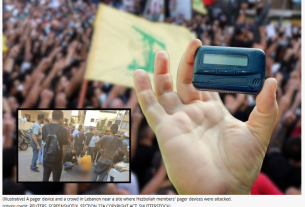Tehran Seeks Diplomatic Leverage Amid Escalating Conflict and Nuclear Tensions
June 17, 2025 — Iran has requested the mediation of Gulf states—including Qatar, Saudi Arabia, and Oman—to help broker an immediate ceasefire with Israel, according to two Iranian officials and three regional diplomatic sources familiar with the matter.
The request, made through diplomatic backchannels in recent days, seeks to enlist U.S. President Donald Trump’s influence over Israel in exchange for potential concessions from Tehran in stalled nuclear negotiations.
According to sources who spoke to Reuters on condition of anonymity, Iran is offering increased “flexibility” on key elements of its nuclear program as part of a broader proposal to de-escalate the ongoing military confrontation and prevent further regional destabilization.
“Iran is prepared to consider adjustments to its nuclear posture if an immediate ceasefire with Israel is achieved,” one of the Iranian sources said. “But this depends heavily on whether Gulf states can secure U.S. support to push Israel to stop its military operations.”
Context: Escalation of Israel-Iran Conflict
The development comes amid an alarming rise in direct military exchanges between Iran and Israel—an escalation that has already led to missile strikes, air raids, and a shutdown of civilian aviation in parts of the region. Both countries have traded accusations over recent attacks on military and civilian infrastructure, fueling concerns of a broader war.
Multiple governments, including the United States and European Union member states, have called for de-escalation, but efforts to establish a formal diplomatic channel between Tehran and Tel Aviv have so far failed.
Role of Gulf Mediators
Qatar, Saudi Arabia, and Oman have historically played roles as intermediaries in regional conflicts, and each maintains varying levels of dialogue with both Iran and the United States. While Saudi-Iranian relations have improved modestly since a 2023 normalization agreement, deep strategic mistrust remains, particularly over Iran’s role in regional proxy conflicts.
Oman and Qatar, both of which have facilitated nuclear talks in the past, are seen as more neutral actors and potentially better positioned to carry Tehran’s message to Washington and Tel Aviv.
A senior Gulf official familiar with the talks said:
“The Iranians are seeking a diplomatic offramp. They know they cannot win a full-scale war, and they are hoping regional actors—especially those with ties to the White House—can help deliver a message to Israel.”
U.S. and Israeli Responses Remain Unclear
As of Tuesday, there has been no official response from the United States or Israel regarding Iran’s overtures. President Trump has previously taken a hardline stance against Iran’s nuclear ambitions but has also expressed willingness to negotiate directly under the right conditions.
The Israeli government has remained publicly silent on any ceasefire talks, while military operations reportedly continue along key fronts.
Strategic Implications
If confirmed and acted upon, Iran’s proposal could mark a pivotal moment in both the regional military standoff and the broader diplomatic efforts surrounding its nuclear program. The current conflict has already resulted in heavy civilian and military losses, travel restrictions, and a rapid deterioration in Middle East security conditions.
Diplomats warn, however, that any ceasefire deal would require significant political will from all sides, particularly given the depth of strategic rivalry between Israel and Iran and the continued mistrust over nuclear and missile-related issues.
Conclusion
Iran’s outreach to Gulf states represents a potential opening for de-escalation, even as the conflict shows signs of deepening. Whether regional powers and the U.S. will act on the request—and whether Israel is prepared to enter into indirect negotiations—remains uncertain. As the diplomatic landscape evolves, regional and global stakeholders are watching closely for signs of a potential shift from confrontation to cautious diplomacy.


